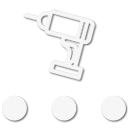Short version: I need help with recovering lost photos off of an SD card.
Long version: I returned from a trip a few days ago and began to transfer the photos from the card to my computer. If it matters, the card is a SanDisk Ultra 30MB/s 16GB. I plug that into a Kodak card reader, which plugs into a USB port. After transfer was complete, I "verified" that everything copied over, then deleted them off of the card and returned it to the camera. I say "verified" because I didn't actually compare the number of files to make sure they were the same. Instead, I only looked at the first and last file names and assumed that everything in between was good. It wasn't. I lost about 120 photos out of the middle. I tried to recover the files using a program called Recuva. It said many of the files were overwritten. I don't see how that could be, as I haven't taken any more photos with that card. The files it did say were recovered, would still not open. Windows said they were damaged or corrupted.
So now I am going to l look at some more recovery programs to see if I have any better luck with any of them. In the meantime, I'd like to know what recovery methods you all use if/when you lose files. Any advice would be appreciated.
Long version: I returned from a trip a few days ago and began to transfer the photos from the card to my computer. If it matters, the card is a SanDisk Ultra 30MB/s 16GB. I plug that into a Kodak card reader, which plugs into a USB port. After transfer was complete, I "verified" that everything copied over, then deleted them off of the card and returned it to the camera. I say "verified" because I didn't actually compare the number of files to make sure they were the same. Instead, I only looked at the first and last file names and assumed that everything in between was good. It wasn't. I lost about 120 photos out of the middle. I tried to recover the files using a program called Recuva. It said many of the files were overwritten. I don't see how that could be, as I haven't taken any more photos with that card. The files it did say were recovered, would still not open. Windows said they were damaged or corrupted.
So now I am going to l look at some more recovery programs to see if I have any better luck with any of them. In the meantime, I'd like to know what recovery methods you all use if/when you lose files. Any advice would be appreciated.



